Scaling Future Challenges
- Par Richard Kometa
- 05 Nov 2018 16:28
- 0 Likes
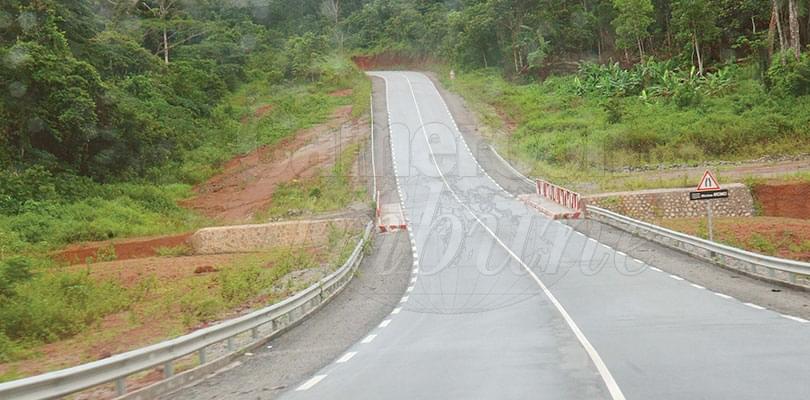
The President of the Republic of Cameroon will be facing a number of situations that must be squarely tackled in the next seven-years.
Cameroon is witnessing another milestone in its political history with the oath-taking exercise of the Head of State, Presidentelect, Paul Biya tomorrow 06 November, 2018. He obtained 71.28 per cent of the votes cast to emerge winner among the nine candidates who went in for the poll. The election campaigns, as expected, demonstrated different views about the country.
But with a single winner identified by the people and confirmed by the Constitutional Council, Mr Biya is going to seal the pact with Cameroonians as he takes the oath of office before Parliament, the Constitutional Council, the Supreme Court, other State dignitaries and representatives of diplomatic missions in the country. Such a combination of solemnity and symbols reflects the unifying factor that the Head of State is expected to play in bringing Cameroonians under one thinking cap to work towards building a stronger nation.
Different political manifestoes presented during the election campaign have to get into a single shelf, which is that of the President of the Republic. He will therefore have an arduous task, looking at the hurdles. Security has of late been worrisome in most parts of Cameroon. The Boko Haram threats in the Far North Region, the influx of refugees from the restive Central African Republic, CAR, unrest in the North West and South Regions as well as refugees from Nigeria, internally displaced persons (IDPs) in both regions and in the Far North have all added up to the phenomenon of Cameroonians from the troubled North West and South West Regions becoming refugees in Nigeria.
Having spent 36 years running Cameroon, President-elect Paul Biya will once more be given the mantle of power to pursue and improve measures taken so far in each of the areas of concern faced by the country. Some of the internal setbacks identified by Cameroonians across the national triangle have been the desire to have a greater say in the management of national affairs. Although the Constitution defines Cameroon as a decentralised Unitary State, the component of the devolution of powers to local councils has been slow or even far below expectations.
The Ministry in charge of Decentralisation should in the days ahead further deliver on Paul Biya’s promise to get citizens better involved in their development activities. Another enigma has been the inability of Cameroonians to ensure food self-sufficiency despite the potentials. Basic commodities like rice, fish, etc. are still being imported in large quantities to meet local demand, whereas the food items could be produced to feed the entire nation and even exported. Talk of mechanisation or second generation farming has remained lipservice. The new tenure should be an opportunity for Cameroonians to be given what it takes to produce enough food.
Of course, any development endeavour must be powered by the required infrastructure. The construction of hydropower electricity dams, roads, railway, telecommunication facilities, among others, has been in short supply in Cameroon. Even the Information and Communication Technologies, ICTs, which have attracted several youth with the employment advantages that they offer need to be accompanied administratively, politically and technically.
Internet bandwidth, for instance, has not ...
Cet article complet est réservé aux abonnés
Déjà abonné ? Identifiez-vous >
Accédez en illimité à Cameroon Tribune Digital à partir de 26250 FCFA
Je M'abonne1 minute suffit pour vous abonner à Cameroon Tribune Digital !
- Votre numéro spécial cameroon-tribune en version numérique
- Des encarts
- Des appels d'offres exclusives
- D'avant-première (accès 24h avant la publication)
- Des éditions consultables sur tous supports (smartphone, tablettes, PC)







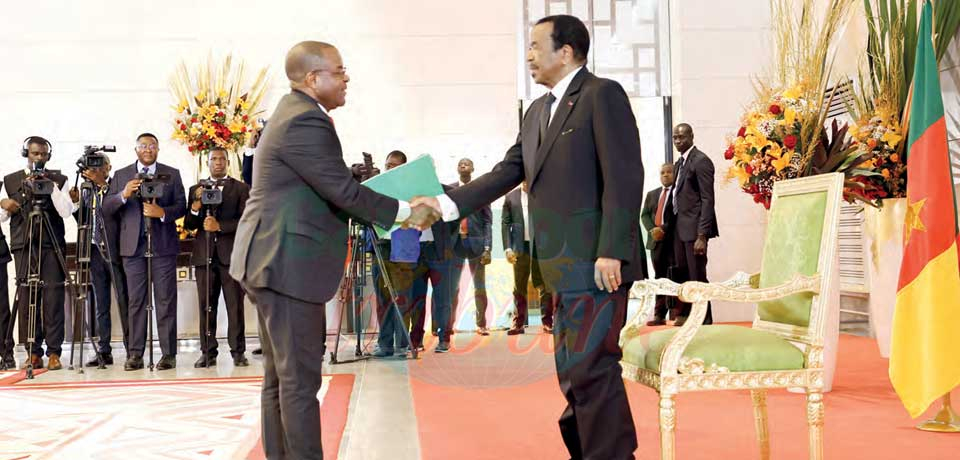
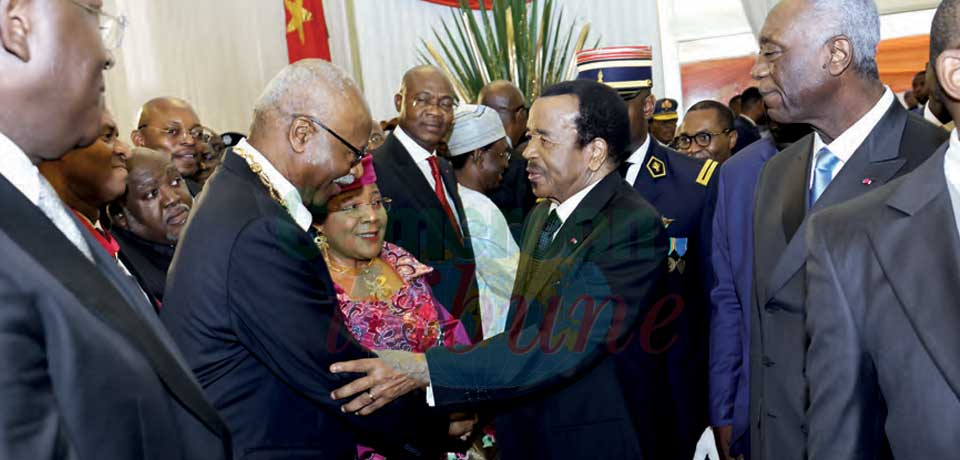
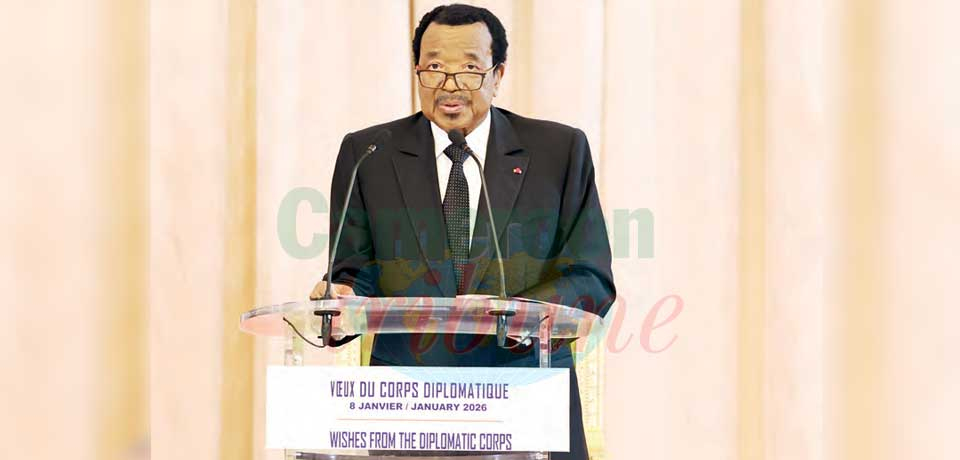
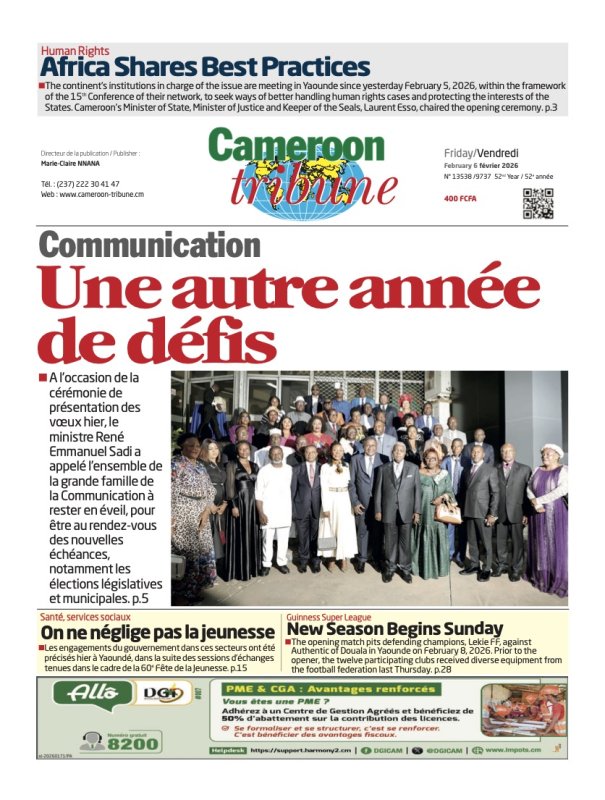




Commentaires